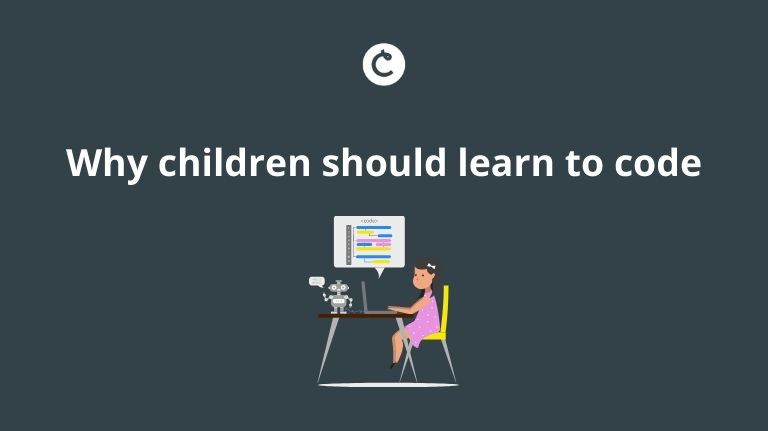Why children should learn to code

Learning how to code is akin to learning a new language. In a study on bilingualism published on NCBI, it was discovered that learning another language has cognitive benefits. These benefits begin at childhood, where kids are able to better adjust to their environment, retain information, and extend even beyond dotage. Now, coding may not be a language per se along the lines of, say, Spanish or Mandarin, but it is a language nonetheless. Even Apple CEO Tim Cook vouched for coding as a language, encouraging everyone, including kids, to learn coding because it is a language that can be used to express oneself to 7 billion people across the world. He even goes as far as saying that coding “should be required in every public school in the world.” In this article we’ll discuss the importance of student coding:

Just as important, coding improves problem-solving skills. Coding, keep in mind, teaches you to approach something in much the same way a software engineer tackles a problem: by employing logical, computational thinking. Crucial to developing computer applications, Medium outlines how computational thinking can also be used in problem solving. It teaches kids to tackle a big problem through decomposition (breaking down the big problem into smaller, more manageable problems), pattern recognition (looking for patterns and trends), abstraction (identifying principles responsible for observed patterns), and algorithm design (coming up with step-by-step solutions to solve each small problem). This process improves creativity as well, as making an algorithm design necessitates the utilization of creativity. It also teaches patience, and big picture thinking, which are important life skills.
Moreover, teaching kids how to code helps open up doors for them in the future. In ‘Why Learning to Code Is so Important for Children’ the Edadvocate points out that coding is one of today’s most popular occupations, and “it is getting more popular day by day.” A head start in this field at a young age is thus an advantage, more so because by being knowledgeable about coding helps prepare kids for a range of lucrative jobs in the IT industry, like becoming a computer programmer, IT specialist, or cyber security information specialist. Introducing kids to this world via coding, therefore, makes sense — equipped with literacy for the digital age, these same kids can pursue coding when it comes to higher education, or in any related field, as preparation for a career in IT.
The challenge, obviously, is how to teach coding to young minds. Fortunately, there are child-friendly, easy-to-use programming languages available, like the MIT-developed Scratch, for instance, or Google’s Blockly. Still, teaching how to code is a challenge; but Scratch co-creator Mitch Resnick shared with Edutopia an approach worth taking. He recommends “getting students to work on projects, based on their passion, in collaboration with peers, in a playful spirit.” Resnick explains that kids will have a deeper connection to coding — and any learning for that matter — if they are passionate about what they are doing, and they are inspired by their peers and having fun. It is an approach worth taking, especially if the trade-off is teaching kids something that will benefit them greatly both in the short and long term.
This is a guest post written by Theresa Nadine, an early-childhood educator with 15 years of experience. She loves working with kids and in her spare time she loves to share her knowledge with her peers.

